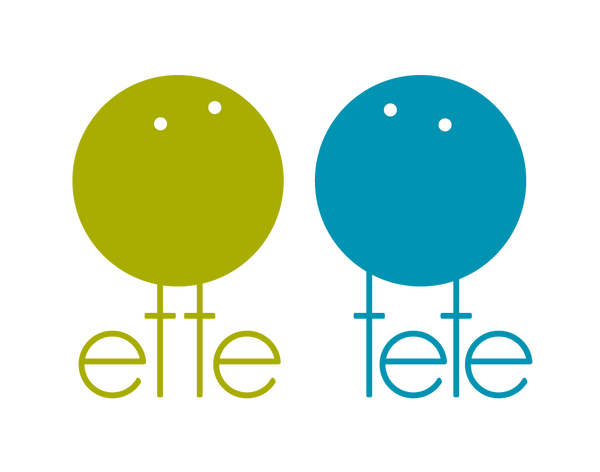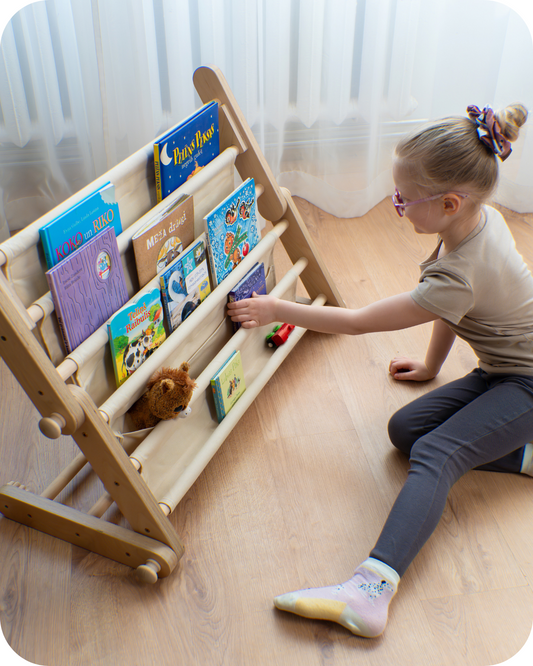As parents, we all strive to provide the best environment for our children's growth and development. Maria Montessori, an Italian physician and educator, dedicated her life to understanding how children learn and grow.
Inspired by her work, the Montessori approach to education and parenting has gained popularity worldwide. In this article, we will delve deeper into who Maria Montessori was, how she developed the Montessori pedagogy, what it entails, and how parents can benefit from incorporating these principles into their daily lives with toddlers.
Maria Montessori: A Brief Biography
Maria Montessori was born in Italy in 1870. Her life was marked by determination and a passion for education and children's well-being.

Despite facing societal barriers as a woman in the 19th century, she became one of the first female physicians in Italy. Through her medical practice, she observed the development of children with diverse backgrounds and abilities, which laid the foundation for her groundbreaking educational philosophy.
Montessori's observations led her to recognize that children are not passive vessels to be filled with knowledge but active learners eager to explore the world around them. She was a pioneer in advocating for children's rights and believed that education should be tailored to meet the individual needs of each child.
The Birth of the Montessori Pedagogy
Maria Montessori's passion for understanding children's natural development led her to design an innovative educational method. In 1907, she opened the first Casa dei Bambini, or "Children's House," in a disadvantaged neighborhood in Rome. The success of this experiment marked the beginning of the Montessori pedagogy.

The Montessori approach is founded on several key principles. Firstly, it recognizes that each child is a unique individual with an innate desire to learn. Montessori educators and parents believe that children's development unfolds at its own pace and should not be rushed or impeded. This philosophy respects the child's freedom of movement, encourages self-directed learning, and instills a love for knowledge.
Understanding Montessori: What It Is
At its core, the Montessori approach is child-centered and based on the principles of freedom, independence, and exploration.

Montessori classrooms and homes are carefully prepared environments that cater to a child's developmental needs. They are filled with purposeful materials and activities designed to foster cognitive, emotional, and physical development.
The Montessori method emphasizes hands-on learning, as it is through active exploration that children gain a deep understanding of their surroundings. Montessori materials are designed to be self-correcting, enabling children to learn from their own mistakes and discoveries. In this environment, children are encouraged to follow their interests and engage in activities that resonate with their curiosity.
Benefits for Child and Parent
The Montessori approach offers numerous benefits for both children and parents:

- Self-confidence: Through self-directed learning and the ability to make choices within boundaries, children develop a strong sense of self-confidence and independence. They learn to trust their abilities and feel empowered to take on new challenges.
- Love for Learning: Montessori fosters a lifelong love for learning, as children are encouraged to explore topics that interest them. By nurturing their innate curiosity, Montessori sets the stage for a lifelong pursuit of knowledge.
- Respectful Discipline: Instead of punitive measures, Montessori advocates for respectful discipline, where children are encouraged to learn from their mistakes and make amends. This approach helps children develop empathy, problem-solving skills, and a sense of responsibility for their actions.
- Parent-Child Connection: Parents who embrace the Montessori approach often experience a deeper connection with their children. By observing and understanding their child's unique needs and interests, parents can better support their development and foster a strong bond based on trust and respect.
Incorporating Montessori Principles into Daily Life
While the Montessori method is typically associated with classrooms, parents can apply its principles at home too.

Here are some basic steps and practical tips:
- Create a Prepared Environment: Designate a space at home with Montessori-inspired toys and activities that encourage exploration and learning. Consider incorporating low shelves where your child can access toys and materials independently.
- Encourage Independence: Allow your child to participate in daily tasks, such as dressing, feeding, and tidying up. Offer child-sized tools for them to use, promoting their independence and sense of responsibility.
- Follow the Child's Interests: Observe your child closely to identify their interests, passions, and developmental stage. Provide age-appropriate materials and activities related to those interests to keep them engaged and motivated.
- Respectful Communication: Speak to your child with respect, actively listening to their thoughts and feelings. Engage in meaningful conversations that encourage language development and emotional expression.
- Embrace the Process: Focus on the journey of learning, not just the end result. Celebrate effort and progress, fostering a growth mindset and a positive attitude towards learning.
Conclusion:
Maria Montessori's profound understanding of children's development has given rise to a nurturing and effective educational approach that benefits children and parents alike. Embracing the Montessori principles in your parenting journey can foster independence, curiosity, and a love for learning in your child. By creating a prepared environment and supporting your child's natural growth, you will witness them thrive and reach their full potential as confident, capable, and compassionate individuals.

Remember, the Montessori approach is not about perfection, but about embracing the joy of learning and discovery together with your child as they navigate the early years of life. As you embrace the Montessori philosophy, you'll discover a profound connection with your child, leading to a fulfilling and rewarding parenting experience.

















































































































